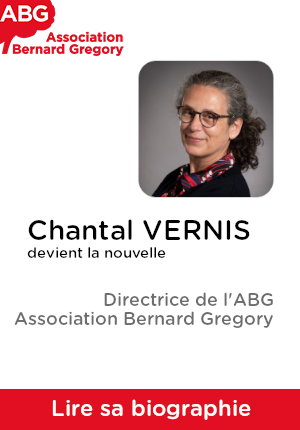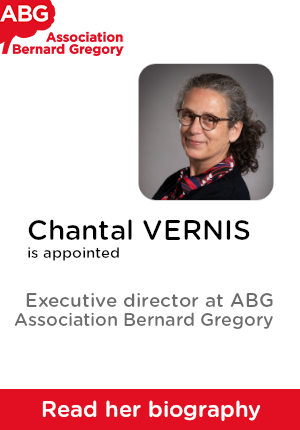What recruiters truly have in mind
Vincent MIGNOTTE - Executive Director
Recruitment processes can differ considerably from one company to another: resumes screened by people or by computers, interviews held one-on-one or with multiple applicants/multiple interviewers, “assessment center” formats or shortlisting by a head-hunter for presentation to the company…

Despite the differences, the initial situation and the conclusion are always the same: there are many candidates at the starting line, but only one reaches the finish. And there is another basic truth as well: it is rare to be hired without meeting one’s future boss.
Whatever the process, the recruitment process is gradual. For the sake of simplicity, let’s imagine a series of three interviews.
The first interview may take place over the telephone. The interviewer’s aim is to determine whether your skills and experience match what the company is looking for. The questions at this stage are targeted and factual; they aim to rule out applicants whose profiles do not fit the bill. For example; “Are you skilled in FRET measurement of protein interactions?” “Are you willing to move to Grenoble?” Your job is to reply concisely and courteously, providing pertinent information, but not starting a lengthy conversation.
The second interview is conducted face-to-face, generally by a Human Resources officer. During your appointment, the HR rep has several questions in mind even if s/he doesn’t voice them:
- “Why is the candidate here?” In other words, what are the his/her motivations for this job? What does s/he know about our business sector and our company? What does s/he know about the role of a project manager? Is this what s/he really wants?
- “What can this candidate do for us?” Specifically, what are his/her skills? What kind of issues is s/he familiar with? How can s/he utilize his/her experience to meet our current need, and evolve going forward?
- “What is s/he like?” What is his/her personality? How well does s/he work as part of a team? Under pressure? In an emergency? This is the point where the recruiter asks that dreaded question: “What are your strengths and weaknesses?”
- “What makes this person different from the other 99 applicants?” In other words, what are his/her strong skills, rare skills, that little “plus” in the candidate’s background? If you ever worked as a radio host in Utah, now is the time to mention it.
- And finally, “How much will s/he cost us?” Clearly, how much does the candidate expect to be paid?
The point of this interview is to determine whether you are a good match for the job in terms of your technical skills, your “soft skills,” and your understanding of the company’s expectations. Nothing beats a well-prepared candidate. Do not try to play this by ear: do your homework. The best way to describe your skills is to explain the context in which you developed them or applied them[1].
From the candidate’s point of view, the third interview is generally an opportunity to meet the future boss. At this stage, only a small number of candidates – the shortlist – are still in the running. Anyone who made the cut after the previous two stages would be able to do the job. Yet a single candidate will be chosen.
Your potential future boss knows the candidate sitting across from him/her is competent; otherwise s/he would not be there! The third interview may still involve some technical questions, of course, but they are not really the point. The boss has a team and wants to make sure you have what it takes to become a part of it. His/her main concerns are:
- “Will I be happy to see this person every morning?”
- “Will s/he be an asset for my team, which I have spent so long putting together?” or on the contrary, “Will s/he be too individualistic?” or “Will s/he be a cohesive or a divisive influence on the team?”
- “Can I put my faith in him/her?” In other words, will I be able to entrust this person with an important project, send him to see a major customer and more generally leave him/her the keys to the castle?
You get the message: this final phase is the most difficult because much of it depends on intuition, feeling and emotion. There is no one-size-fits-all approach, no recipes to help you. It is your enthusiasm, your energy, your curiosity, and also your humility, that will make you “sought-after.” Come prepared to discuss episodes of your career that illustrate your ability to be a good team player, and ask the right questions. It is especially important to ask your future boss to tell you about his/her team!
And by the way, this is a common reason why some candidates always end up second at the end of the recruitment process. Some try to stand out by having an answer for everything; others ask the wrong kind of questions (“Why have you decided to open a plant in Iran despite the current geopolitical context?”). Still others boast about their academic diplomas to a self-made boss. Any of these attitudes can lead to a polite rejection….
It is important to remember that although interviews are stressful for the candidate, they are just as stressful for the hiring manager. The cost to a company of a bad hire – that is, an unsuccessful onboarding of the new hire – is estimated to amount to about two years of the employee’s gross salary. It may seem counter-intuitive, but a good candidate is one who is able to reassure the recruiters they are making the right choice!
[1]You will find helpful resources on www.mydocpro.org
Get ABG’s monthly newsletters including news, job offers, grants & fellowships and a selection of relevant events…
Discover our members
 ADEME
ADEME  Aérocentre, Pôle d'excellence régional
Aérocentre, Pôle d'excellence régional  PhDOOC
PhDOOC  Ifremer
Ifremer  SUEZ
SUEZ  ANRT
ANRT  ASNR - Autorité de sûreté nucléaire et de radioprotection - Siège
ASNR - Autorité de sûreté nucléaire et de radioprotection - Siège  CESI
CESI  MabDesign
MabDesign  Nokia Bell Labs France
Nokia Bell Labs France  CASDEN
CASDEN  MabDesign
MabDesign  Groupe AFNOR - Association française de normalisation
Groupe AFNOR - Association française de normalisation  Institut Sup'biotech de Paris
Institut Sup'biotech de Paris  TotalEnergies
TotalEnergies  ONERA - The French Aerospace Lab
ONERA - The French Aerospace Lab  Laboratoire National de Métrologie et d'Essais - LNE
Laboratoire National de Métrologie et d'Essais - LNE  Généthon
Généthon  Tecknowmetrix
Tecknowmetrix







